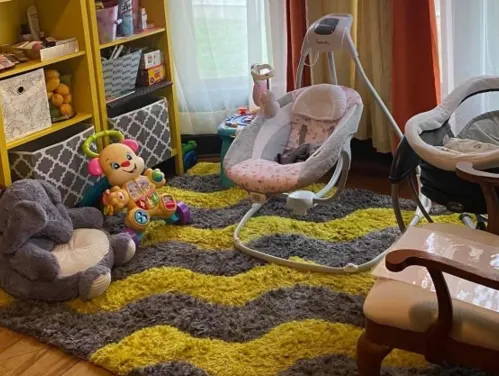At least 25 more children from working poor and immigrant families in Des Moines now have hope for expanded access to Barbie Adams' child care center thanks to a $240,000 grant from the state of Iowa.
The money is part of $36.6 million in Child Care grants awarded earlier this week by Iowa Governor Kim Reynolds. Iowa Workforce Development and the Iowa Department of Human Services worked together to score project applications and award the grants. Originally planned for $10 million, the program was expanded by Reynolds after the state received a flood of quality applications. The total includes $26.9 million in federal DHS funds, $3 million appropriated by the Iowa legislature for the Child Care Challenge Fund (administered by IWD), and $6.7 million in federal ARPA funds.
Across the state, awards will be matched with $9.7 million in private funding to fuel 108 innovative projects in 72 communities.
“I am thrilled to be able to make this substantial investment to expand access to child care for working families,” Reynolds said in a news release announcing the grants. “Projects funded through this program will create a lasting impact on children, parents, and communities throughout the state.”
For Adams, the cash will mean growth.
“Sometimes you get defeated, because you cannot meet everybody’s need,” she said. “This grant has given me new purpose.”
Adams, who immigrated from Kenya in 2009, currently lives in the Riverbend neighborhood of Des Moines, where she operates an in-home child care center that’s limited to 12 children at any one time. According to 2019 census data, residents of the 0.5-square-mile neighborhood have an average household income of $38,016, with 74 percent belonging to a racial minority.
There are plenty of poor people, including immigrants and others who have few options when it comes to work-life balance, Adams said. “When people have no education and don’t have a grasp of the English language, they don’t qualify for a lot of jobs.”
Some turn to Adams’ Warydi International Daycare center, which offers 24-hour care. Depending on family need, parents who have to work nights can drop their children off and Adams – along with her state-licensed husband, father, and stepmother – will make sure everyone gets fed and arrives at school the next morning. Or, she’ll pick them up after school and watch over the children until the parent’s work shift ends in the middle of the night.
In between, Adams, who speaks seven languages, will also provides lessons on music, manners, and the proper way to fold laundry or clean off a table. Residents in her neighborhood have their own unique needs, Adams said.
“I wanted to change all these things by being a daycare provider that’s different,” she said. “I wanted to be a bridge.”
She hopes to expand that bridge over the next year, when she uses the $240,000 grant to remodel the house next door and expand the scale of her childcare efforts. If DHS approves, the money eventually will allow Adams to add slots for roughly 25 children – and create the possibility of additional expansion later that could add dozens more.
Beth Townsend, Director of Iowa Workforce Development, said the Child Care grants were created to support “exciting” programs like Warydi.
“There are an incredible number of innovative projects in these grants that will positively improve the lives of the communities, families and children that they serve,” Towsend said. “Having quality child care significantly increases the number of Iowans who can work, and the investment today will pay huge dividends in our future.”
Visit the Child Care Challenge website for details about the grants and a full list of the most recent awards.
